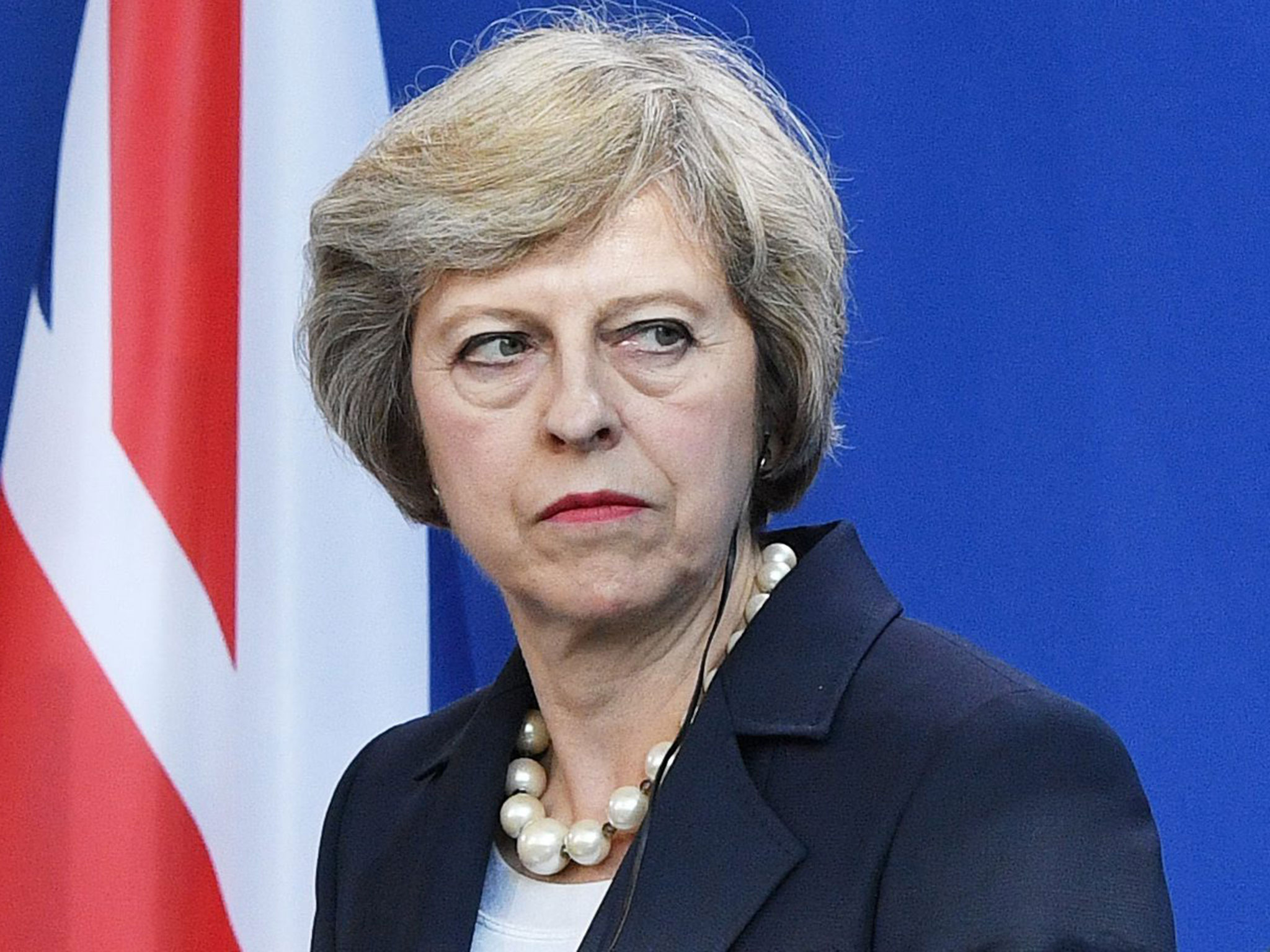Theresa May's Political Nightmare Just Keeps Getting Worse

EghtesadOnline: Life for U.K. Prime Minister Theresa May keeps getting harder.
According to Bloomberg, May faced the titans of British business on Monday as her government struggled to get ahead of a sexual harassment scandal that’s rocked the political establishment, forced one Cabinet minister to resign, and thrust into the line of fire Damian Green, her deputy.
Green, 61, denied in the strongest terms a Sunday Times newspaper report that police found pornography on one of his parliamentary computers in 2008. He called the claims by a former top police official “completely untrue” and “political smears.” Green wrote in a statement posted on Twitter that the allegations were “little more than an unscrupulous character assassination.”
The spotlight on such a senior figure, who’s also a personal friend of May, puts the embattled Conservative leader in a bind when she can least afford to be derailed from the task of getting a breakthrough in divorce talks from the European Union. The clock is ticking down to a December summit where investors and business want signs of Brexit progress.
May’s authority has been eroded since she unexpectedly lost her parliamentary majority in June’s snap election. Her weakened state regularly begs the question of how long she can last before she’s ousted -- or if she limps on as the Tories keep fighting over Europe.
Tipping Point?
If there’s to be a tipping point it could happen any time in such a politically charged climate. Today’s scandal is about the pervasive culture of sexual misconduct in the halls of powers; in June, May was on the defensive when a fatal fire in a London housing tower brought to the surface public anger at years of austerity under the Tories.
In the short term, May could come under pressure to reshuffle her team. Green is being investigated by the cabinet office for earlier allegations of inappropriate behavior, and the latest claim will also be taken up by the same body.
“I know that the Cabinet Office is going to be looking at this,” on Monday, “along with the wider inquiry about Damian, and I do think that we shouldn’t rush to allege anything until that inquiry has taken place,” Home Secretary Amber Rudd said on the BBC’s “The Andrew Marr Show.”
In the meantime, the bad news keeps piling on. On Sunday evening, a junior whip, Chris Pincher, resigned from his post and referred himself to the police over a report that he exposed himself to a male Conservative activist 16 years ago.
An Opportunity
“There’s an opportunity for a changing of the guard and that could benefit her,” said Justin Fisher, professor of politics at Brunel University. “Under unpleasant circumstances, it could be a good way of renewing the cabinet and refreshing the look of the party, which does look a bit tired at the top.”
Whether May, 61, feels she has the political breathing room to do that, or even wants to, is another thing. She’s nine seats short of a parliamentary majority and reliant on support from 10 members of Northern Ireland’s Democratic Unionist Party to keep governing.
The suspension of any Conservative lawmaker would whittle that majority even further, and reshuffles can create enemies of demoted politicians. Tories fear starting a chain of events that could precipitate another general election, potentially ushering the main opposition into power. The latest polls indicate Labour would beat the Tories if an election were held now.
For its part, Labour is also tainted by a scandal that has women speaking out about their treatment by male politicians going back years. May will meet Labour leader Jeremy Corbyn on Monday to discuss a cross-party approach to the harassment scandal.
Rudd said that wrongdoers should be cleared out: “I think Westminster afterwards -- including the government -- will be better for it.”
Brexit has been briefly knocked off the front pages by the scandal, but remains a problem large enough to consume a government. A fresh round of talks resumes this week, and it’s not clear if the U.K. has anything new to offer on the sticking point of what the U.K. will owe the EU when departs in March 2019.
Britain faces a steady drumbeat of warnings from business leaders about the need for certainty. Many companies view January as the cut-off date in terms of their own contingency planning. A transitional deal, as Chancellor of the Exchequer Philip Hammond put it, is a wasting asset, while one that arrives too late will be of little use to companies.
May faced an anxious crowd at the Confederation of British Industry’s annual conference on Monday, beset by demands from the manufacturing lobby to open the purse strings to offset the effects of Brexit after a new report said that almost two-thirds of EU businesses who work with U.K. suppliers expect to move some of their supply chain out of Britain.
“A strictly time-limited implementation period will be crucial to our future success,” May told them. “I know how important it is for business and industry not to face a cliff-edge and to have the time it needs to plan and prepare for the new arrangement.”


